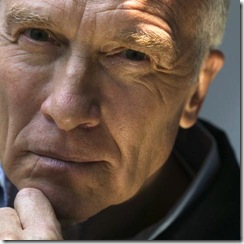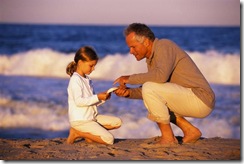How come I know so much?
People often ask me that. Not gloating or anything – grin.
No seriously, its not that I know more than others. Its just that I use a website to share it. Anybody who has lived to 40 as I have will have had plenty of experience and learnt lots of things. People who have lived longer tend to know more, and people who are younger tend to know less and think they know more!
However when it comes to knowledge there are some important things to understand. I remember when I finally got my head around these concepts it was like breaking through a brick wall or finally creating the right mix of chemicals! Ka-Boom!
 First there is far more knowledge than you realise. About lots of things. As soon as you can possible make the admittance that you don’t know everything there is to know about any given subject, and that other people may know more or different things about the same subject the sooner you will stop being a “know-it-all” annoying type of person. I used to be one of these before this “revelation” hit me. More on this below. I think the worst thing I can hear some one say is that they don’t need to learn about something because they know all they need to know about it. The only thing sadder than that is the person who is convinced they are right about their knowledge of a subject and is not prepared to listen to reasoned debate of alternative views. Religion and politics feature highly with this one.
First there is far more knowledge than you realise. About lots of things. As soon as you can possible make the admittance that you don’t know everything there is to know about any given subject, and that other people may know more or different things about the same subject the sooner you will stop being a “know-it-all” annoying type of person. I used to be one of these before this “revelation” hit me. More on this below. I think the worst thing I can hear some one say is that they don’t need to learn about something because they know all they need to know about it. The only thing sadder than that is the person who is convinced they are right about their knowledge of a subject and is not prepared to listen to reasoned debate of alternative views. Religion and politics feature highly with this one.
Second there are 4 types of knowledge.
- There are all the things you know that you know. This is actually a very small amount. Think of a grain of sand in a bucket. That is what you know compared with the next 2 things.
- There are the things you know that you don’t know. You probably know that your microwave works using technology that you don’t know about. You probably know that your doctor understands how cancer is caused but most of us don’t know the specifics. This is maybe 3/4 of the bucket of sand.
- There are the things you don’t know that you know. These include the things you forgot, but you learnt once. The name of your kindergarten teacher for example. Maybe the ability to smash through a glass window – well you would suddenly be able to do that if your baby was behind it in a building on fire. This is the remaining quarter of a bucket.
- The last thing is all the things you don’t know that you don’t know. This is like the sand on the very large beach that the bucket is on. Only you don’t know that the beach even exists because you live inside the bucket and you cant see out. Once you can visualise the beach you suddenly realise the vast amount of knowledge that is there waiting to be explored. This is the revelation that needs to happen for some people. Once they can see beyond the boundaries of their tiny plastic bucket mind they suddenly become less arrogant, more humble and accepting of others viewpoints and opinions.
 The exploration of knowledge is a wondrous thing.
The exploration of knowledge is a wondrous thing.
Here are some hints and tips I have picked up that can help you learn more. This is not exhaustive – of course. Any readers with more ideas please comment and add your knowledge to this small sand castle.
- Deliberately pick some topics – one or 2 at most that you intend to study for 2 years. Read books, subscribe to RSS feeds about them, take classes maybe, find people who know more and network with them – study under them and learn from them. in 10 years time this course of action alone will see you being an expert or at least a very knowledgeable person in 10 major topics. in 30 years, 30 major topics. That’s more than most people ever know. Yes this is a long term view but I can say for certain that since I started this practice some 6 years ago that it is starting to pay off for me. I wish I had started it younger.
- Throw out your preconceived ideas. You don’t need to abandon your beliefs or opinions. Just be prepared to have them shaken. Particularly beliefs. If what you know is true it will probably be confirmed as a result. If it is not then you might just find yourself changing your mind about some things. This can be hard. I have had to make some hard decisions about some “religious truths” I held as a result of studying theology and philosophy. The result is that while I have had my faith confirmed far more seriously than I ever had before, I have had to change some of my understandings. I had been taught and accepted without questions a belief structure about some things that I have now had the chance to read the studied debates on. Debates held by people who are very gifted in this field of study and have spent their life time studying and writing about it. I am currently reading the complete works of Francis Schaeffer, probably the last centuries most gifted theologian / philosopher / Christian apologist.
- Be prepared for some controversy. Where there are two sides or more to a field of thought there will be always be conflict. Human nature dictates this. Study carefully and don’t just believe the first thing you read. Read the critics and opponents to evaluate the others points of view.
- Don’t believe everything you read. Cross reference/ double check. If its on the Internet find several non connected sources to verify information. Establish the facts before you create beliefs.
- Keep your mouth shut. Don’t start spouting off about your new knowledge 4 weeks in. Wait for the 2 years or more before you consider yourself an expert. By that time you will probably realise that you are not an expert at all and keep your mouth shut anyway. This is one I had trouble with (and probably still do).
 Share the knowledge. No this is not in conflict with the previous paragraph. Sharing what you know because you read something is not the same as spouting off as the fount of all knowledge on the subject. Qualify your advice or knowledge with the source and let others know that you are sharing information you have learnt but you are not qualifying it as absolute truth. Write a blog or website like this one to share what you learn as you go. Others will find the site and the commenting system will allow a community of other people interested in the topic to offer their advice, comments and links. Teach a class, help your friends, join a hobby group, coach a sport. There are lots of ways that you can make your knowledge useful. On its own knowledge is useless, shared it is invaluable.
Share the knowledge. No this is not in conflict with the previous paragraph. Sharing what you know because you read something is not the same as spouting off as the fount of all knowledge on the subject. Qualify your advice or knowledge with the source and let others know that you are sharing information you have learnt but you are not qualifying it as absolute truth. Write a blog or website like this one to share what you learn as you go. Others will find the site and the commenting system will allow a community of other people interested in the topic to offer their advice, comments and links. Teach a class, help your friends, join a hobby group, coach a sport. There are lots of ways that you can make your knowledge useful. On its own knowledge is useless, shared it is invaluable.
Finally be confident in yourself. You have got talents and abilities to share to the world. Don’t shortchange yourself. You do know stuff, but often other people are not aware of it. So get out there. Learn and Live and Share it..





Recent comments
10 years 37 weeks ago
10 years 37 weeks ago
10 years 39 weeks ago
10 years 39 weeks ago
10 years 39 weeks ago
10 years 39 weeks ago
10 years 39 weeks ago
10 years 39 weeks ago
10 years 39 weeks ago
10 years 39 weeks ago